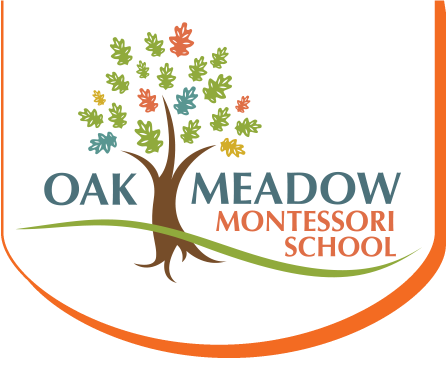For the last few weeks, I’ve heard from many parents about how much they appreciate having their child in a small, personalized learning community. Often when this topic comes up, it’s in the context of comparing experiences with friends at other schools. Or sometimes I hear from a parent who came to Oak Meadow from another school and appreciates the positive impact this has made for their child.
Today at lunch time, during my virtual meetings with parents across the school, I decided to focus on this topic specifically. Is smaller actually better? Is that even more true now, during COVID-19, when learning is happening online?
 “A small school like Oak Meadow is absolutely better,” one parent told me. “That’s been the greatest value of Oak Meadow all along.” Another parent with a child at Oak Meadow and a well-known, much bigger school shared, “I am seeing both extremes right here with our children. At the bigger school, learning has essentially stopped. Teachers are not teaching. My child at this school has no live connection by video with peers or teachers. She gets a few videos to watch, but mostly it’s just a list of assignments to turn in at the end of the week. That’s not engaging my child. Oak Meadow is the other end of the spectrum. Here there is a live virtual connection every single day, with peers and teachers. That has made a huge difference for our child at Oak Meadow.” Another parent added, “Our child came to Oak Meadow after being in a much bigger school. Now she is comfortable in her own skin. The teachers see her strengths, and through one-to-one or small-group instruction, our child receives personalized attention that helps her do her best, even when school is now online.”
“A small school like Oak Meadow is absolutely better,” one parent told me. “That’s been the greatest value of Oak Meadow all along.” Another parent with a child at Oak Meadow and a well-known, much bigger school shared, “I am seeing both extremes right here with our children. At the bigger school, learning has essentially stopped. Teachers are not teaching. My child at this school has no live connection by video with peers or teachers. She gets a few videos to watch, but mostly it’s just a list of assignments to turn in at the end of the week. That’s not engaging my child. Oak Meadow is the other end of the spectrum. Here there is a live virtual connection every single day, with peers and teachers. That has made a huge difference for our child at Oak Meadow.” Another parent added, “Our child came to Oak Meadow after being in a much bigger school. Now she is comfortable in her own skin. The teachers see her strengths, and through one-to-one or small-group instruction, our child receives personalized attention that helps her do her best, even when school is now online.”
An Oak Meadow teacher who joined me during the virtual lunch meeting told about her own experience at a much bigger school. She expressed it this way: “Many teachers in bigger schools are held back by mandates where there are pressures to evaluate children mostly on how they compare with the average. At Oak Meadow, we look at each individual child, what that child needs to move forward, how we can take the time to observe how that child is doing (even online), and how we can respond to each child through individual and small-group instruction. For us, children learn through a dynamic relationship with their teachers and with peers.”
Of course, teachers share specific examples with me all of the time:
- Children who are continuing to develop new friendships with each other, even online
- Children who are still learning from their peers by being able to observe them online
- Older students reading to younger students; older kids mentoring younger kids
- A science teacher who drove to the home of each student in his class to deliver the STEM materials needed for the next project
- Teachers who modify the assignments and due dates to meet the needs of students and families who are struggling with how to juggle the demands of online learning in their home
- Teachers who make sure that students get two individualized meetings with the teacher each week, to make sure no one falls through the cracks
Smaller schools like Oak Meadow are inherently positioned to accommodate the needs of our students and families in challenging situations like a pandemic. This personalized approach is not as likely at bigger schools. This comment from a teacher captures what’s happening at Oak Meadow, where we continue to be well ahead of the curve: “My favorite times online have been in the half-hour after morning circle. As often as possible, I leave the time open for students to stay online in an informal setting, working on math, cultural, language, or just sitting and talking while they do their work. This time that they have together feels more like the classroom and the learning they’re used to more than anything else I’ve done.”





